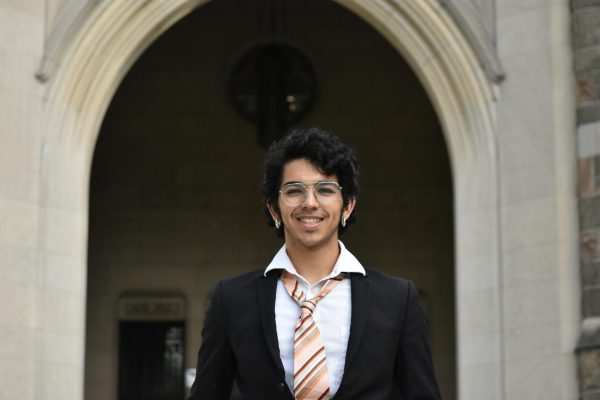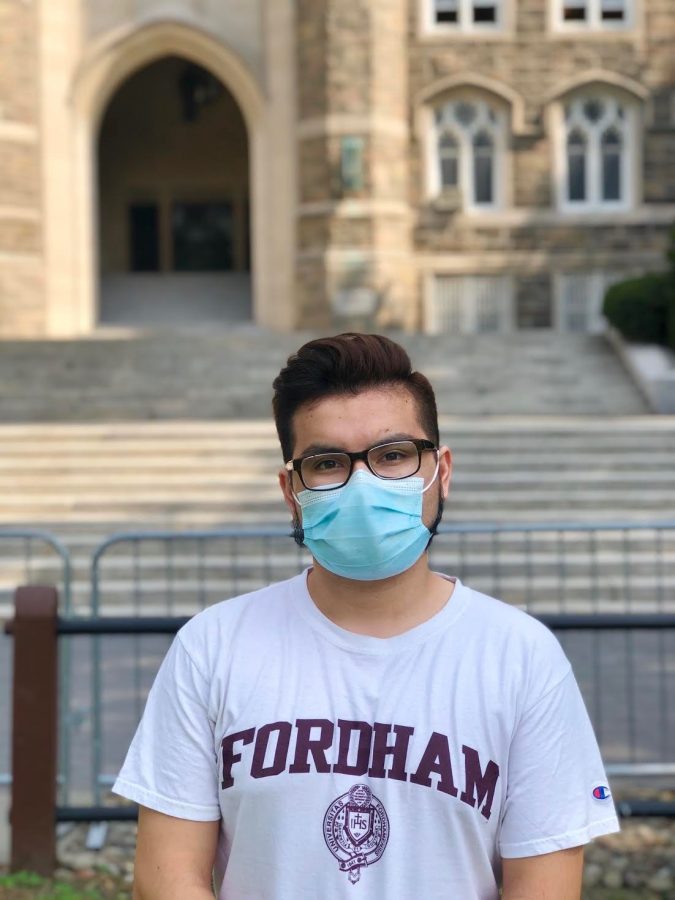Andres Salgado, Reducing Stress and Anxiety in STEM students
Andres Salgado, FCRH ’21, understands the amount of stress that students, especially those in science and math fields, feel around midterms and finals season. His research aims to pinpoint the largest sources of this stress and develop ways to relieve it.
Salgado’s method of research is heavily reliant on the participation of test subjects. Chosen from Biology 1 classes across both Fordham University campuses (Rose Hill and Lincoln Center), students are asked to write a self-reflection, referred to as an “intervention,” an hour before their midterm and final. While the interventions primarily measure test anxiety, they also work toward a greater goal.
The intervention works as a reliable measurement of stress on multiple levels, according to Salgado. For one, the interventions are easily adaptable for students from any educational background. Salgado is aware that students who come from areas where education is not as developed or progressive are likely to be less prepared to handle the stress that comes from the transition to a university setting. By pinpointing and alleviating this stress, the students will be encouraged to persevere through difficult STEM classes. Salgado hopes that the interventions will create an avenue for students’ grades to increase while their stress decreases.
Before beginning his research, Salgado had to get approval from the Institutional Review Board, a committee that reviews research proposals and approves them based on a standard of ethics. After getting the approval and creating the preliminary recruitment materials, Salgado reached out to current Biology 1 students. As it currently stands, Salgado’s research project is tracking the stress of 39 students.
Salgado plans on spending the spring semester proceeding with data analysis.
“If these writing interventions can prove to be useful, then these interventions can be replicated and possibly be extended beyond STEM to help students improve stress levels and academic potential,” Salgado said.
The process for Salgado’s research has largely gone without conflict. Unlike many other undergraduate researchers who had to adapt to the conditions created by the COVID-19 pandemic, Salgado’s project needed no tweaking. When forming the idea, Salgado planned on conducting his research through an online medium.
Salgado believes that his research project has been incredibly beneficial as it relates to his plans for the future. “I plan to pursue a Ph.D. in clinical psychology; however, this degree requires an immense amount of research-related experience,” Salgado said. “By embarking on this research project, I have an understanding of what it means to conduct my own research with human participants. I hope this project will allow me to demonstrate my skills and knowledge when it comes to research relating to stress and anxiety,” Salgado said.

Sebastian Diaz is a senior from Chapel Hill, N. C. who is double majoring in journalism and film. After starting as a news reporter for The Fordham Ram...












































































































































































































